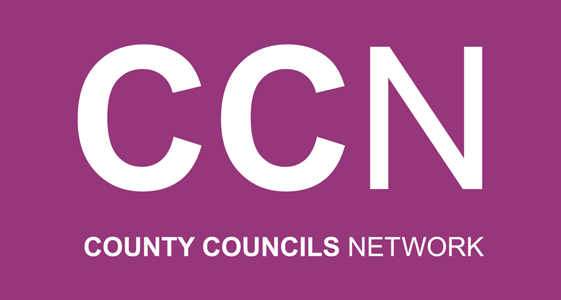
CCN Blogs, CCN News 2018 | 21 March 2018

The perspective of County Councils could not be clearer. Demand for Adult Social Care is growing so quickly that it is in shouting distance of half of all County spend. At the current rate of demand growth (which by the way is expected to continue for decades) it won’t be just Northants in dire trouble, CFOs up and down the Shires will be dusting off their Section 114 guidance and taking a stiff drink before going to see the Leader. But we could be forgiven for thinking that help is on its way. A Green Paper in June will surely address these existential threats for County Hall, and by the time of the Budget in November, perhaps these problems will be solved?
Well, no. Or at most, perhaps in part. My pessimism of course is borne of the obvious reality that government hasn’t much fiscal room and even less of a majority. But more importantly, the question of council financial sustainability is of much less importance to the government than the question of how the average voter pays for social care. We can expect the Green Paper to address, as its priority, the issue of what thresholds and caps might be in put place for citizens to be comforted that their wealth will not be unduly raided in the event of significant personal social care costs. And we can therefore expect the Green Paper to also deal with, depending on levels of policy generosity, how new thresholds and caps might be funded. But the policy goal here is about ensuring the distributional effect on individuals, not the local state is seen to be broadly positive. Whether councils have more funding to pay for care for the vulnerable and those without means is secondary or at worst, the Wrong Question, at least for the government. I believe some extra money will be on its way, but I doubt whether it satisfies the ‘sustainable funding’ promise set out by Jeremy Hunt as one of his ‘seven principles’. An increase in commissioner regulation, whilst disliked perhaps by localists, may help to bring attention to funding gaps and injustices.
If we accept the Green Paper will not provide all the answers we want, but probably provide a little short term relief and hope, then it is time to think hard about how to set a medium term strategy at the County level that can work. County Councils have been innovators in social care in a number of respects – in managing demand processes, in reforming social work practices and in joining up with Children’s services and the NHS. But there are new frontiers to be charted. Adult Social Care as a demand-led service requires three investments to be held in balance:
The Right Question for County Hall is about how to make those investments. Not at the level of experiments but at game-changing scale, often with partners in other Counties, the NHS and the independent sector. Almost a decade of revenue poverty has meant the task has become greater, and so we need to see boldness in building our care infrastructure for the future. These steps will include a more interventionist approach in the market to renew the crumbling social care estate, the conversion of warm words on disability independence into improved whole life pathways and a revolution in the way data and technology is used to support people. Our Shire Counties are at their best when they use their scale and authority to tackle the issues government cannot or will not. For Adult Social Care, that moment is surely here.
 Alex Khaldi
Alex Khaldi
Partner, Head of Social Care Insight and Analytics
Grant Thornton UK LLP
© 2024 County Councils Network | Credits | Site map | Cookies | Privacy Policy.